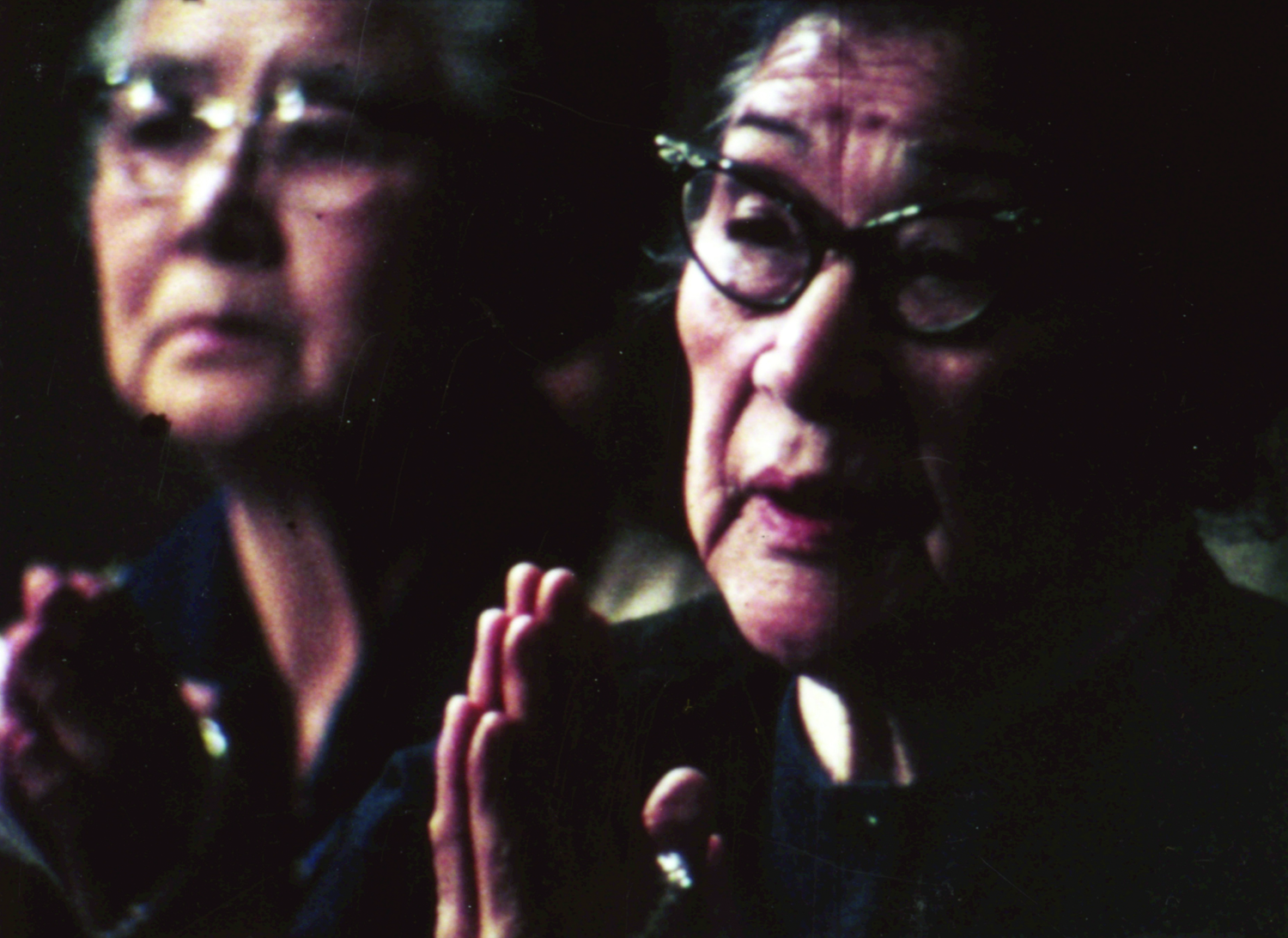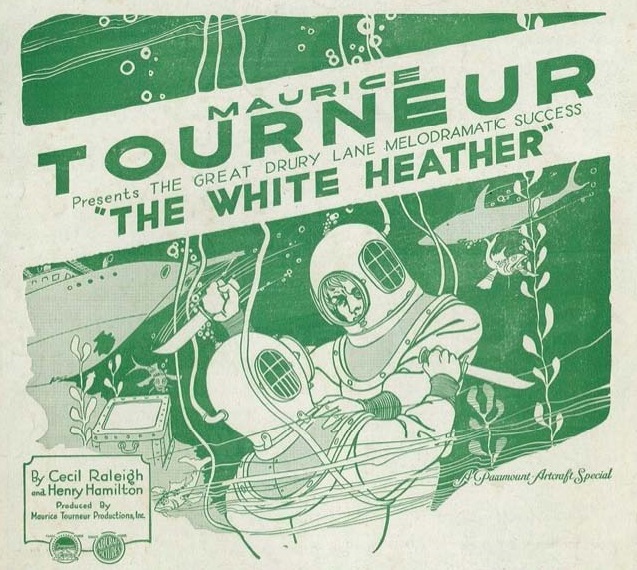60 Orphan Films to be Preserved through the NFPF’s 2023 Grants
 |
|
Pieces of a Dream (1974) will be preserved by Visual Comunications with NFPF support.
|
The National Film Preservation Foundation is thrilled to announce the recipients of its 2023 federally funded grants, which will allow 31 institutions across 13 states and the District of Columbia to preserve 60 films from their collections. To see the full list of 2023 grant winners, click here.
A prominent connection between this year’s grant films is a focus on community, represented in diverse forms across the United States. Starting on the west coast, Eddie Wong’s Pieces of a Dream (1974), to be preserved by Visual Communications, tells the story of immigrant farm laborers who settled in the Sacramento River Delta town of Locke—a National Historic Landmark District—from the 1880s to 1970s. It examines the plight of Filipino farm workers stranded in rural poverty, the travails of a Japanese American farming family, and the history of the Chinese who constructed the Delta levees, reclaimed the farmlands, and built Locke itself. Pieces of a Dream reveals that behind Locke’s image of a preserved tourist landmark lies a threatened community.
From west to southeast: UNC Chapel Hill will preserve ten home movies filmed between 1925 and 1941 at the Penn School on Saint Helena Island, South Carolina. Now a National Historic Landmark District, the school was founded by northern missionaries in 1862 as one of the first to educate formerly enslaved West Africans, and eventually became an industrial school on the Hampton-Tuskegee model advocated by Booker T. Washington.
Further south, Appalshop Archives will preserve Beyond Measure (1994) by Herb E. Smith, who co-founded Appalshop in 1969. His documentary looks at the loss of thousands of coal mining jobs following the mechanization of coalfield labor and documents the efforts of citizens to rebuild their communities. Interviewees discuss the beauty and challenges of living in the mountains and describe how extended families and attachments to the land are more important than what economists can measure.
 |
|
The titular soon-to-be-reformed hoodlum in Shades (1960), to be preserved by the Yale Film Archive with NFPF support.
|
Mississippi Triangle (1984), slated for preservation by Third World Newsreel, documents the power relations and divisions of labor between Asian, Black, and white communities in the Mississippi Delta region. Praised by scholar Scott Macdonald as “one of the more unusual collaborative experiments in the history of American independent cinema,” the film was made by three crews, each focused on—and represented by—a specific ethnicity. Eschewing a narrator, the film depicts locals such as Luck Wing and Unita Blackwell, both “firsts” as Chinese American and Black women mayors of small towns in Mississippi.
Almost as eclectic as the community portraits are the sponsored films to be saved by this year’s grants. Knox County Public Library will preserve The Four Pillars of Income (1939), produced by C.W. “Bill” Bailey, President of the First National Bank of Clarksville, Tennessee, who advocated for his agrarian clientele to embrace crop rotation. The Hagley Museum and Library will preserve Where’s Joe (1972), produced by Cinecraft Productions (founded in 1938 and still in operation) for the leadership of the United Steelworkers Union and a collection of American steel companies. The Yale Film Archive will preserve Shades (1960), a short film produced by the City College of New York’s Institute of Film Techniques for the NYC Department of Correction that tells the story of a fictional hoodlum whose rehabilitation was meant to instruct fledgling correction officers.
Also slated for preservation are two renowned documentaries: UCLA Film & Television Archive will safeguard In the Best Interests of the Children (1977), which uses interviews and observational footage to examine the challenges faced by lesbian mothers in keeping custody of their children. Eight families detail their experiences with custody, children’s fathers, and the courts. Produced by Iris Films, founded by five lesbian filmmakers, the film draws attention to the testing and scrutiny lesbian mothers were subjected to and suffered under.
 |
|
Demon Lover Diary (1980) will be preserved by the Chicago Film Society with NFPF support.
|
The cult classic Demon Lover Diary (1980), to be preserved by the Chicago Film Society, is a behind-the-scenes look at the production of an independent horror film shot in Michigan in 1975. Diary director Joel DeMott chronicled the unglamorous reality of low-budget moviemaking—everything from amateurish mistakes to borrowing firearms from Ted Nugent—and provided present-tense commentary. The result was acclaimed by Film Comment as “positively crucial to documentary film history.”
The San Francisco Silent Festival will preserve a fiction film long thought lost: The White Heather (1919), directed by Maurice Tourneur, one of the most highly regarded silent era filmmakers. The silent melodrama, which follows the suffering family of a dastardly aristocrat, has a supporting cast including John Gilbert, Gibson Gowland (Greed), and Ben Hamilton (Dragnet). It climaxes with an underwater fight shot in Los Angeles Harbor using the Williamson Submarine tube. Variety called the film “an absolute masterpiece” that stood out “on the strength of the thrills that the camera made possible and which could not be secured on the stage.”
Further highlights of this year’s grants include home movies of astronaut David Scott (the seventh man to walk on the moon) at the 50th edition of the Indianapolis 500; footage of the construction of the San Francisco–Oakland Bay Bridge filmed by an employee of the Hills Bros. Coffee Company; John Marshall’s ethnographic study N/um Tchai: A Celebration of the Dance of the !Kung Bushmen (1969); tropical research films shot in the 1930s by ichthyologist Gloria Hollister; Cutting a Quill (1959), a documentary on calligrapher John Howard Benson assembled from footage shot by Robert Flaherty and Richard Leacock; and footage of 1950s visits to Africa by pioneering African American actress and singer Etta Moten Barnett and her husband Claude, founder of the Associated Negro Press, America’s largest Black-owned news agency.
 |
|
The White Heather (1919) will be preserved by the San Francisco Silent Film Festival through an NFPF grant.
|
Since its creation by Congress in 1996, the NFPF has provided preservation support to 337 institutions across the country to save more than 2,760 films. Its grants—which provide support to create a film preservation master and two access copies of each work—are made possible by funds authorized through The Library of Congress Sound Recording and Film Preservation Programs Reauthorization Act of 2016—secured through the leadership of the Library of Congress—and the contributions of public-spirited donors. A curated selection of the preserved films is available for viewing on the NFPF website, and more than 260 additional titles have been made accessible by our grant recipients.
